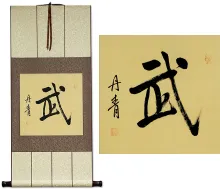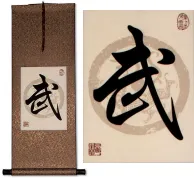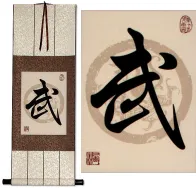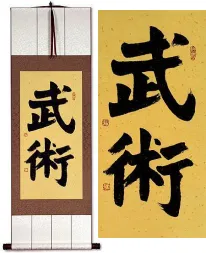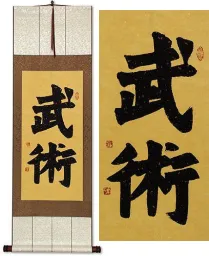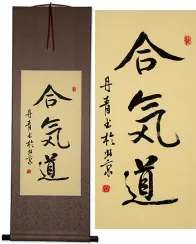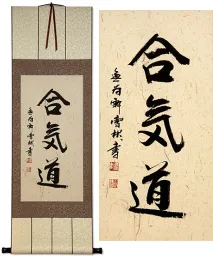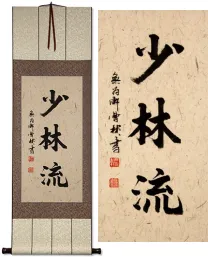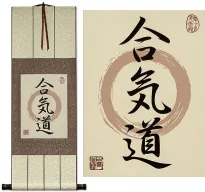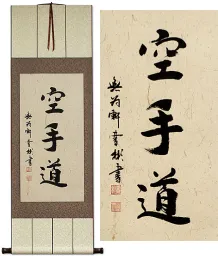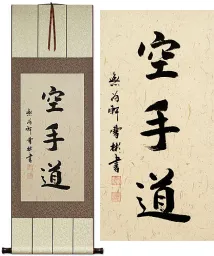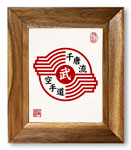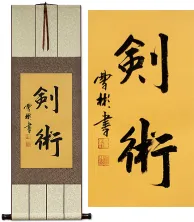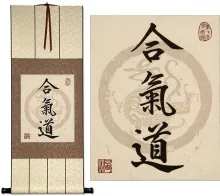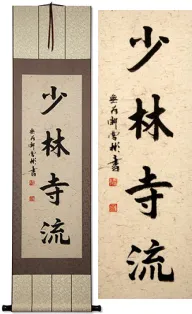The Name Spirit Of The Dragon Martial Arts in Chinese/Japanese on a Personalized Wall Scroll.
Click the "Customize" button next to your name below to start your personalized Spirit Of The Dragon Martial Arts calligraphy artwork...
Spirit Of The Dragon Martial Arts
This in-stock artwork might be what you are looking for, and ships right away...
Gallery Price: $90.00
Your Price: $49.88
Gallery Price: $90.00
Your Price: $49.88
Gallery Price: $168.00
Your Price: $92.88
Gallery Price: $168.00
Your Price: $92.88
Gallery Price: $178.00
Your Price: $98.88
Gallery Price: $90.00
Your Price: $49.88
Gallery Price: $200.00
Your Price: $92.88
Gallery Price: $106.00
Your Price: $58.88
Gallery Price: $180.00
Your Price: $99.88
The following table may be helpful for those studying Chinese or Japanese...
| Title | Characters | Romaji (Romanized Japanese) | Various forms of Romanized Chinese | |
| Spirit Of The Dragon Martial Arts | 龍之魂武術 龙之魂武术 | lóng zhī hún wǔ shù long2 zhi1 hun2 wu3 shu4 long zhi hun wu shu longzhihunwushu | lung chih hun wu shu lungchihhunwushu |
|
| In some entries above you will see that characters have different versions above and below a line. In these cases, the characters above the line are Traditional Chinese, while the ones below are Simplified Chinese. | ||||

